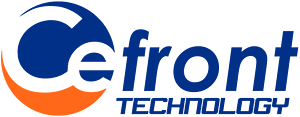Our mission is to develop fish cages that will ensure a sustainable large scale growth in seafood production
In 1995, the founder of Seafarming Systems, Alf Reidar Sandstad, worked as a fish farmer and discovered the challenges of conventional cages. This was the birth of the Aquatraz cage concept. In order to realize the steel cage, Sandstad went to NTNU for a master’s degree in engineering. The education was followed by many years of designing offshore platforms and follow-up at shipyards in China. From these experiences, a network of people with strong and relevant technology expertise has been hand-picked, and today they contribute to the development of closed and semi-closed cages in steel for Seafarming Systems. The aim is competitive fish cage solutions that will contribute to realizing Seafarming Systems’ mission of a sustainable large scale growth of seafood production. Closed and semi-closed fish farms that solve the environmental challenges.
Salmon and seafood are good sources of protein. Seafarming Systems mission to develop fish farming systems that can contribute to large scale growth in a sustainable manner is aligned with UN’s sustainable development goals. Increasing the world’s sustainable food production while caring for the oceans and it’s biodiversity. Seafarming Systems’ first commercial cage, the semi-closed Aquatraz fish cage, prevents escape, protects against salmon lice and provides the salmon with a good aquatic environment. Steel cages provide stable platforms which in turn provide safer workplaces. When salmon are protected from salmon lice and escapes, production at sea can be increased. With increased production along the coast, the need to collect the sludge increases. Seafarming Systems therefore also develops completely closed cage solutions such as Aquantum Leap and Aquasafe with sludge collection.
The Norwegian government has an ambitious goal of producing 5 million tonnes in 2050. In order to reach this goals a few environmental challenges must be solved. Seafarming Systems develops different fish farming solutions that not just solve the challenges of sea lice, escape and pollution of the sea, but also facilitates large scale production in order to reach the desired growth. One Aquantum Leap fish farm can produce up to 33.000 tonnes per year. 40 Aquantuum Leap facilities would cover the Norwegian yearly production of c. 1,3 million tonnes. Sustainable technology becomes viable through utilising economy of scale.
Foto Steinar Johansen/MNH







